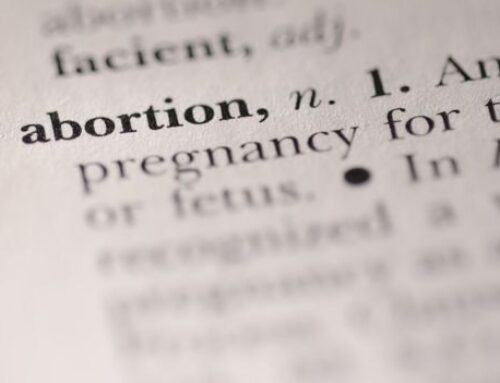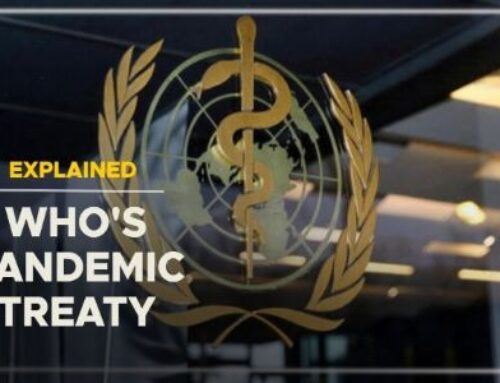I know people who have handed me the lame excuse, and that’s exactly what it is a lame excuse, that they’ve done so many terrible things, unspeakable things, awful things they could never be forgiven.
Utter rubbish. Nothing but a lame excuse. Another one of their lies. Because they either refuse to believe and are forever mired in darkness and their eventual destiny the depths of unbearable beyond comprehension hell — or they love their sin, their selves, the world and are addicted to the things of the world and can’t remove themselves from those things being their all and everything. Selfish and idolizing themselves and things they think bring lasting pleasure while they know all those thoughts of lasting pleasure and memories are like dew in the coming heat of the day slowly vanishing. There are no lasting pleasures here on earth. Because the body dies. Lifeless. But the spirit within is going to reside somewhere. In only one of two places. For eternity.
Refusing the free gift of God’s grace, His forgiveness for any and all sin. No matter what or for how long is the greatest mistake and longest-lasting error a person can make. In their life. An eternally grave error. Yet they continue in their lies and excuses. Mired in darkness and sin refusing to believe, refusing to repent, refusing to allow the Holy Spirit of God to work in them.
An eternal mistake.
And I’m tired of casting pearls before swine.
See Matthew 7:6
It may sound harsh, but it is an important principle for the man or woman of God’s righteousness. It can be difficult for the principled Christian to know when to speak and when not to speak. There are those that are so hardened to the truth that to give it to them only adds fuel to the fire or their unbelief. This is more times than not the reality rather than their lies of their sins are so great they could never be forgiven.
I’m keen to say here — poppycock! Their lame excuse imaging they’re pulling one over is clearly seen for what it truly is. A heart so hard, so dead, so spiritually devoid of seeing or hearing the Truth, the Way, the Light, and the Life.
They have been given over to eternally be enslaved to their master, Satan, with their consuming unrighteous and reprobate minds.
See Romans 1
So, please, now is the time as no other. Read the message from Dr. Philip Akinyemi below about God’s free gift of grace. To any and all sinners. And all have sinned and fall short of the glory of God.
And no one is good. Especially those who categorize themselves as good based on their definitions and irrational rationale all founded on worldly wisdom and beliefs rather than the spiritual wisdom of God and the words, ways, and practices contained in the inerrant Word of God.
Ken Pullen
Thursday, February 17th, 2022
ACP — A Crooked Path
DOES GOD WITHHOLD GRACE BECAUSE OF SIN?
By Dr. Philip Akinyemi
Grace is commonly defined as the goodness or love of God for undeserving people who have forfeited it. The Greek New Testament word for grace is charis, which expresses a notion of free, self-determined kindness or favor. Yoruba uses a compound word for grace (Ore-ọ̀fẹ́), which makes it noticeably clear. Ore means goodness or kindness and ọ̀fẹ́ means free, goodness freely shown. Grace is free; it is not earned or deserved. “The grace of God that brings salvation has appeared to all men” (Titus 2:11).
Let me paint a picture that perhaps will help you grasp what grace means. The world is currently facing the COVID-19 pandemic. The government has poured unbelievable amounts of money into finding a cure for this deadly virus. Many physicians, scientists, and other professionals have spent countless hours working on vaccines and other remedies. I believe God will give us the insight to solve this global problem. God gave insight to Moses to provide a cure for snakebite that killed many Israelites in the wilderness. He will have mercy on the world. But let’s say instead of what transpired with people being able to receive the vaccine freely that the president of the United States of America came on TV early on when the vaccine was finally ready to administer to people. And he thanked all that worked relentlessly to come up with the vaccine, and he goes on to say, “This vaccine for COVID-19 will be made available free for all American citizens except those in jail.” What would be your reaction? I believe the majority of the country would oppose his utterance. Some might even say to him, “He that is without sin should cast the first stone.”
The deadliest virus to ever come to humankind is spelled S.I.N. God said, “The soul who sins shall die.” Sin brought spiritual death. Since Adam and Eve toppled into transgression, heaven’s mission onward was human redemption. Only God Himself has the antidote for sin. And He did it through the blood of His begotten Son Jesus Christ. “Without the shedding of blood there is no forgiveness” (Hebrews 9:22). “For the wages of sin is death, but the gift of God is eternal life in Christ Jesus our Lord” (Romans 6:23). If God is interested in our salvation—and He is, for He said, “I am not willing that any should perish but that all should come to repentance,” and He allowed His only Son to die for our sin—and salvation comes through grace by faith, why then would He withhold grace because of sin? Remember, the question we are addressing here is “Does God withhold grace because of sin?” It is not “Does God punish sin?” or “Does He discipline His children?”
God does not withhold grace because of sin. Many church people still find it difficult to understand or accept the doctrine of grace. The problem lies in the fact that in normal life, we do not operate this way. If we are offended by somebody, we tend to withdraw from the person and withhold favor. If, for example, you provide financial support for an individual and you hear that he is saying bad things about your family, your first inclination may be to withhold favor. Some people will support your stance. They might even say that you ought to teach him a lesson, that you don’t bite the hand that feeds you. God is not like that. “Where sin increased, grace multiplied all the more.”
“The law was added so that the trespass might increase. But where sin increased, grace increased all the more, so that, just as sin reigned in death, so also grace might reign through righteousness to bring eternal life through Jesus Christ our Lord.” (Romans 5:20-21 NIV)
“All that passing laws against sin did was produce more lawbreakers. But sin didn’t, and doesn’t, have a chance in competition with the aggressive forgiveness we call grace. When it’s sin versus grace, grace wins hands down. All sin can do is threaten us with death, and that’s the end of it. Grace, because God is putting everything together again through the Messiah, invites us into life—a life that goes on and on and on, world without end.” (Romans 5:20-21 MSG)
The first mention of the word grace in the Bible is in Genesis 6:8, “But Noah found grace in the eyes of the LORD.” However, the first manifestation of grace was with Adam and Eve in the garden of Eden. They were God’s crown of creation. They were created in His image, and He loved them and had constant fellowship with them until they sinned. The relationship was disrupted due to sin. When God came to visit them, they hid themselves because they had broken His command by eating the fruit from the forbidden tree. God had said, “But of the tree of the knowledge of good and evil you shall not eat, for in the day that you eat of it you shall surely die” (Genesis 2:17). They feared that judgment was coming on them and that God would withhold grace from them. On the contrary, God poured His grace on them: where sin increased, grace multiplied even more. When they became aware of their nakedness and covered their shame with leaves, God made garments of skin for Adam and his wife, despite their sin. And there, God announced the Messiah who would one day destroy the work of Satan. “And I will put enmity between you and the woman, and between your seed and her Seed; He shall bruise your head, and you shall bruise His heel” (Genesis 3:15).
We see the demonstration of God’s grace over the children of Israel throughout their forty-year journey to the Promised Land despite their sin. When the children of Israel came to Mount Sinai, God gave them the law, which began, “I am the LORD your God, who brought you out of the land of Egypt, out of the house of bondage. You shall have no other gods before Me” (Exodus 20:2-3). Moses went up to meet with God, and God wrote the Ten Commandments on a tablet and gave him specifications for the construction of the tabernacle with its altar and laws concerning the priesthood. God instituted ceremonies that showed the method by which sinful men and women could approach Him. While God was still speaking, the people had made an idol and started worshipping it. They committed adultery and broke all other laws of God. Did God withhold grace from them? No! On the contrary, where sin increased, grace abounded even more. If it were you and I, we would probably have put a hold on the construction of the tabernacle and disqualified Aaron from being the priest.
When we come to the New Testament, grace unfolds with greater magnificence. The Son of God appeared on earth as the perfection of every grace. The Apostle John tells us, “For the law was given through Moses, but grace and truth came through Jesus Christ” (John 1:17). An angel of the Lord announced His coming and what He would do for His people. “And she will bring forth a Son, and you shall call His name JESUS, for He will save His people from their sins” (Matthew 1:21). But when their long-awaited Messiah came, what did the people do unto Him? They ridiculed Him. They cried out, “Crucify Him! Crucify Him!” But before His death, He prayed, “Father, forgive them, for they do not know what they do” (Luke 23:34). Even so great a sin as crucifying the Son of God did not cause grace to be withheld. Rather, where sin increased, grace abounded even more.
The Apostle Paul testified to the grace he received that brought salvation to him despite the life he lived before his encounter with the risen Christ:
“For I am the least of the apostles and do not even deserve to be called an apostle, because I persecuted the church of God. But by the grace of God I am what I am, and his grace to me was not without effect. No, I worked harder than all of them– yet not I, but the grace of God that was with me.” (1 Corinthians 15:9-10)
“Even though I was once a blasphemer and a persecutor and a violent man, I was shown mercy because I acted in ignorance and unbelief. The grace of our Lord was poured out on me abundantly, along with the faith and love that are in Christ Jesus.” (1 Timothy 1:13-14 NIV)
The grace of God is love freely shown toward guilty sinners, contrary to their merit and indeed in defiance of their demerit. It is God showing goodness to people who deserve only severity and had no reason to expect anything but severity.
Grace and salvation belong together as cause and effect. “It is by grace you have been saved” (Ephesians 2:5, 8). “The grace of God that brings salvation has appeared to all men” (Titus 2:11). The gospel declares how “God so loved the world that He gave His only Son, that whoever believes in Him should not perish but have eternal life” (John 3:16); how “God demonstrates His own love toward us, in that while we were still sinners, Christ died for us” (Romans 5:8).
I read a story of a police officer who stopped a mother driving her car without a booster seat for her infant child. The officer would normally have written her a ticket for violating the law, but when he discovered the woman was in bad financial straits, he asked her to follow him to a store, where he purchased a booster seat with his own money for her. What this woman got was both mercy and grace. The officer not giving her a ticket was mercy: the officer had pity on her. She was guilty of driving without a booster seat for her infant child but received what she did not deserve: a free booster seat from a police officer. That was grace. In this case, mercy preceded grace.
So is the order of our salvation as conceived by God: mercy precedes grace. For God so loved the world with a pitying love (mercy), that He gave His only begotten Son (grace), that the world through Him might be saved (Ephesians 2:4; Luke 1:78-79). Grace will always cost something; in our case, it cost God His beloved Son.
Embracing the grace of God will also teach us to say no to ungodliness. Grace teaches us how to live right beyond what the law can do. As we appreciate God for the wonders of mercy and grace, we will joyfully want to please Him for His daily goodness to us.
The same grace is open to you today, no matter how great your sin is. Perhaps you have stolen, committed adultery, harmed people, or even murdered somebody; this grace is available to you. But remember, everyone has a limited time here on earth. The Bible says, “It is appointed for men to die once, but after this the judgment” (Hebrews 9:27). There is no more repentance after death. Come to Christ today! “The grace of God that brings salvation has appeared to all men” (Titus 2:11).







Leave a Reply, please --- thank you.